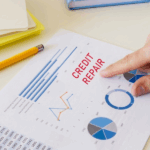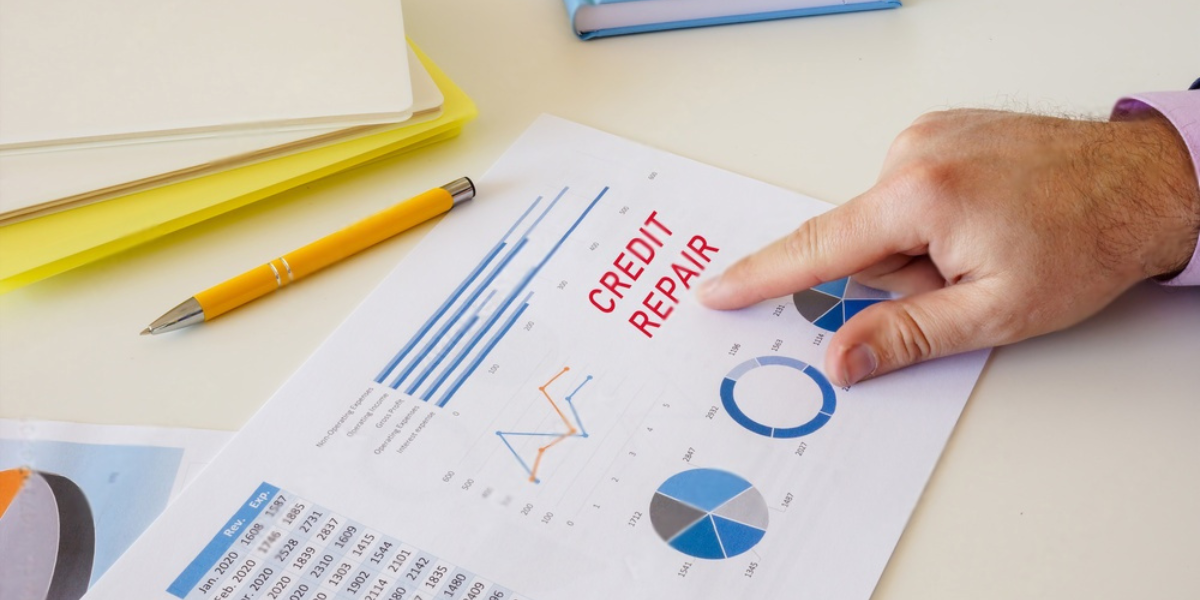Credit repair is often viewed through the lens of numbers and financial strategies, but what about the psychological hurdles that come with it? The journey to improving your credit score is intertwined with emotional and mental challenges that can either stall or propel your progress. How do feelings of shame and inadequacy affect your financial decisions? And can changing your mindset really influence your credit health? These are crucial questions related to the psychology of credit repair that often go unasked but have profound implications on the path to financial recovery.
Understanding the psychology of credit repair is essential. It involves paying off debts and improving credit scores while addressing the emotional baggage that often accompanies financial distress. What role does emotional intelligence play in financial decision-making? How can recognizing and controlling emotional spending lead to better financial habits? Exploring these questions can provide deeper insights into how you can manage your finances more effectively and achieve a healthier credit status.
Understanding Financial Shame and Its Impact
Financial shame can significantly impede the credit repair process. This emotional burden often stems from societal pressures where financial status is mistakenly equated with personal value. The shame associated with debt can prevent individuals from acknowledging their financial issues, thus delaying necessary actions for credit improvement. Recognizing this shame is the first step towards overcoming it, and it requires an honest assessment of one’s financial situation and the emotions it evokes, highlighting the importance of the psychology of credit repair.

The Power of Open Conversations About Debt
Discussing financial struggles openly can be a powerful tool in alleviating the burden of debt-related shame. By breaking the silence, individuals can access emotional and practical support, gaining insights that may not have been apparent in isolation. Conversations about debt and financial challenges should be encouraged as they demystify the struggles many face, fostering a supportive community that empowers individuals to take actionable steps towards credit repair, underscoring the psychology of credit repair.
Embracing a Growth Mindset for Financial Recovery
The transition from a fixed to a growth mindset can dramatically influence financial recovery. A fixed mindset might view credit repair as unattainable due to inherent limitations, whereas a growth mindset embraces challenges and views them as opportunities for development. This shift is crucial as it encourages resilience and a proactive approach to credit management.
Cognitive Restructuring: Changing Financial Beliefs
Cognitive restructuring involves identifying and altering negative financial beliefs. Techniques such as journaling or speaking with a financial therapist can help reframe thoughts from self-defeating to empowering. For instance, replacing the belief “I am bad with money” with “I can learn to manage money effectively” paves the way for positive financial behaviors and improved credit management, highlighting the psychology of credit repair.
Establishing Healthy Financial Habits
Establishing daily financial routines is essential for sustainable credit health. These habits might include reviewing bank statements, tracking spending, or setting reminders for bill payments.

Consistency in these habits builds financial discipline, which is crucial for long-term credit improvement.
- Regularly check credit reports for inaccuracies.
- Set specific, measurable financial goals.
- Automate savings and bill payments to avoid late fees.
Enhancing Financial Decision-Making
Enhancing financial decision-making involves understanding the impact of each financial choice and recognizing common pitfalls like impulsive spending. Tools such as budgeting apps or financial planning worksheets can aid in making informed decisions that align with one’s financial goals, thereby avoiding decisions that could lead to credit setbacks. Understanding the psychology of credit repair can also play a crucial role in this process.
Managing Finances with Emotional Intelligence
Recognizing Emotional Spending
Identifying triggers for emotional spending is critical in managing finances effectively. These triggers could be stress, excitement, or even social influences. By recognizing these triggers, individuals can develop strategies to cope that do not involve spending, such as engaging in a hobby or consulting with a financial advisor.
Building Resilience Against Financial Setbacks
Building emotional resilience is essential in facing financial challenges and setbacks. This involves maintaining a positive outlook, learning from past mistakes, and staying focused on long-term goals. Resilience can be fostered through practices like mindfulness, which maintains one’s focus and composure in financial decision-making.
By addressing the psychological aspects of credit repair, individuals can develop a healthier relationship with their finances. Embracing both emotional and practical strategies, informed by the psychology of credit repair, is essential for successful credit repair and long-term financial wellness.
Conclusion: Navigating the Psychology of Credit Repair for Better Credit Health
The journey to credit repair involves overcoming psychological barriers as well as implementing financial strategies. The emotional burden of financial shame can significantly impede one’s ability to address and rectify credit issues. By fostering open conversations about debt, individuals can break the stigma and create a supportive network that propels financial recovery. Adopting a growth mindset and engaging in cognitive restructuring are crucial in transforming self-defeating thoughts into empowering beliefs, setting the stage for improved financial habits and decision-making through the psychology of credit repair.

Recognizing emotional triggers and building resilience against financial setbacks are essential for maintaining a healthy relationship with money. These practices not only aid in immediate financial management but also ensure long-term credit health. As you navigate your credit repair journey, remember that each step taken towards emotional understanding and resilience, through the psychology of credit repair, not only enhances your financial decisions but also rebuilds your financial identity. Let the realization that your self-worth isn’t defined by your financial past be the guiding light towards a brighter, more secure financial future.


